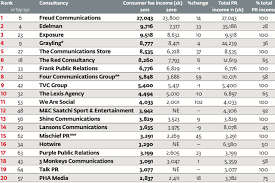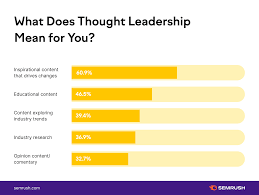Industry Expertise: The Key to Success in Today’s Business World
In today’s fast-paced and highly competitive business landscape, industry expertise has become more crucial than ever before. It is the key that unlocks doors to success, enabling businesses to thrive and stay ahead of the curve. Whether you’re a small startup or an established corporation, having deep knowledge and understanding of your industry is essential for sustained growth and innovation.
So, what exactly is industry expertise? It goes beyond just having a surface-level understanding of your products or services. It encompasses a comprehensive understanding of the market dynamics, emerging trends, customer needs, competition, and regulatory landscape specific to your industry. Industry experts possess in-depth knowledge gained through years of experience and continuous learning.
One of the primary benefits of industry expertise is the ability to make well-informed decisions. When you have a deep understanding of your industry, you can anticipate changes and adapt your strategies accordingly. This foresight allows you to identify opportunities before others do and take proactive steps to capitalize on them. Industry experts are able to navigate challenges with ease, as they have encountered similar situations in the past and know how to overcome them effectively.
Moreover, having industry expertise enhances credibility and builds trust among customers and stakeholders. When you demonstrate an in-depth knowledge of your field, it instills confidence in those who rely on your products or services. Customers are more likely to choose a company that has proven expertise in their respective industry over competitors who lack such knowledge. Similarly, investors are more inclined to support businesses that are led by individuals with a track record of success within their sector.
Industry expertise also plays a crucial role in fostering innovation. By staying at the forefront of industry developments, experts can identify gaps or unmet needs within the market. This insight allows them to develop innovative solutions that address these challenges effectively. With their finger on the pulse of their industry, experts can introduce groundbreaking ideas that disrupt traditional norms and drive positive change.
Building industry expertise is a continuous journey. It requires a commitment to ongoing learning, staying updated with the latest trends, attending industry conferences, networking with peers, and seeking mentorship from experienced professionals. Embracing a growth mindset and being open to new ideas are also essential for expanding one’s knowledge base within an industry.
For businesses looking to enhance their industry expertise, investing in talent development and creating a culture of continuous learning is crucial. Encouraging employees to pursue professional development opportunities, providing access to relevant resources, and fostering cross-functional collaboration can all contribute to building a knowledgeable workforce that drives innovation and success.
In conclusion, industry expertise is an invaluable asset in today’s business world. It empowers businesses to make informed decisions, build credibility, foster innovation, and stay ahead of the competition. By investing in developing industry expertise within their organizations, businesses can position themselves for long-term success in an ever-evolving marketplace.
9 Benefits of Industry Expertise: Unlocking Success through Knowledge and Understanding
- Increased knowledge and understanding of the industry and its trends.
- Improved decision making skills due to in-depth understanding of the sector.
- Enhanced ability to develop innovative solutions and strategies tailored to the specific needs of the industry.
- Ability to identify potential opportunities for growth or expansion in the market.
- Increased confidence when interacting with customers, suppliers, partners and other stakeholders in a professional manner.
- More efficient use of resources by having a better grasp on how best to allocate them across different areas within an industry sector or company’s operations
- Greater ability to anticipate customer needs and provide more tailored services as a result
- Improved productivity by having a better understanding of how processes should be carried out for maximum efficiency
- Enhanced customer service experience due to greater insight into customer requirements
6 Cons of Industry Inexperience: Impacts on Decision-making, Competitiveness, Relationships, Costs, and Implementation
- Lack of experience in the industry can lead to costly mistakes.
- Lack of knowledge about current industry trends and best practices can mean that a business is not as competitive as it could be.
- Without industry expertise, it may take longer to make decisions or complete tasks as one has to research and learn more about the sector first.
- It is difficult to develop relationships with customers, suppliers and other stakeholders without an understanding of their needs in the context of the industry they operate in.
- Industry expertise can be expensive to acquire, either through hiring additional staff or external consultants/experts which can be costly for small businesses or start-ups who are on a tight budget.
- If there is no internal expertise within a business, then any changes or improvements suggested by external sources may not work effectively due to lack of understanding about how things work in practice within the sector – leading to wasted time and resources trying out ideas which are unlikely to succeed from the outset due to lack of knowledge about how they fit into existing processes/structures etc
Increased knowledge and understanding of the industry and its trends.
Increased Knowledge and Understanding of the Industry and Its Trends: The Power of Industry Expertise
In the dynamic and rapidly evolving business landscape, having increased knowledge and understanding of your industry and its trends is a significant advantage. This is where industry expertise truly shines, providing businesses with the ability to stay ahead of the curve and make informed decisions that drive success.
Industry experts possess an in-depth understanding of their sector, including market dynamics, emerging trends, customer preferences, and regulatory changes. They have their finger on the pulse of their industry, constantly monitoring shifts in consumer behavior, technological advancements, and market forces that can impact business strategies.
With this heightened awareness, industry experts are well-equipped to anticipate changes before they happen. They can identify emerging trends and adapt their strategies accordingly. By staying ahead of the curve, they are better positioned to seize opportunities as they arise and gain a competitive edge over those who are slower to react.
Moreover, increased knowledge and understanding of the industry allow experts to navigate challenges with confidence. They have encountered similar situations in the past and have developed strategies to overcome them effectively. Their deep understanding helps them assess risks more accurately and make calculated decisions that mitigate potential pitfalls.
Another benefit of industry expertise is the ability to spot gaps or unmet needs within the market. By closely following industry trends, experts can identify areas where customer demands are not being fully met or where new opportunities for innovation exist. Armed with this insight, businesses can develop tailored solutions that address these gaps effectively, positioning themselves as leaders in their field.
Furthermore, industry expertise enhances credibility among customers and stakeholders. When businesses demonstrate a comprehensive understanding of their sector’s intricacies, it instills confidence in those who rely on their products or services. Customers feel reassured knowing they are dealing with knowledgeable professionals who understand their specific needs.
Additionally, increased knowledge of industry trends fosters innovation. By staying informed about emerging technologies or changing consumer preferences, experts can proactively develop innovative solutions that meet evolving demands. They can leverage their understanding of the industry landscape to introduce groundbreaking ideas and disrupt traditional norms, driving positive change within their sector.
To cultivate increased knowledge and understanding of the industry, professionals must commit to continuous learning. This involves staying updated with the latest trends through industry publications, attending conferences and seminars, participating in networking events, and seeking mentorship from experienced individuals within their field.
In conclusion, the pro of increased knowledge and understanding of the industry and its trends is a game-changer for businesses. Industry expertise empowers professionals to make informed decisions, anticipate changes, navigate challenges effectively, spot opportunities for innovation, enhance credibility, and drive success in a competitive marketplace. By embracing industry expertise as a core asset, businesses can position themselves for growth and prosperity in an ever-evolving business world.
Improved decision making skills due to in-depth understanding of the sector.
Improved Decision Making: The Power of Industry Expertise
In the dynamic and ever-changing business landscape, making informed decisions is crucial for success. One significant advantage of industry expertise is the ability to enhance decision-making skills through an in-depth understanding of the sector. When leaders possess comprehensive knowledge about their industry, they can make well-informed choices that drive growth and steer their organizations towards success.
Industry experts have spent years immersing themselves in the intricacies of their sector. They possess a deep understanding of market dynamics, emerging trends, customer preferences, and the competitive landscape. This extensive knowledge provides them with a unique perspective that enables them to anticipate opportunities and challenges.
With an in-depth understanding of their industry, experts can accurately assess risks and rewards associated with various decisions. They are equipped with the insights needed to identify potential pitfalls and mitigate them effectively. This ability to evaluate risks allows them to make calculated decisions that minimize negative impacts on their businesses.
Furthermore, industry expertise empowers leaders to navigate through complex situations with confidence. By drawing on their wealth of experience, they can quickly analyze scenarios and determine the best course of action. This agility enables them to respond swiftly to market changes or unexpected challenges, giving their organizations a competitive edge.
Informed decision making also extends beyond day-to-day operations. Industry experts are better equipped to develop long-term strategies that align with market trends and customer demands. They can identify emerging opportunities before others do and capitalize on them proactively. This forward-thinking approach ensures that businesses stay ahead of the curve and maintain relevance in an ever-evolving marketplace.
Additionally, industry expertise fosters a culture of innovation within organizations. Leaders who possess deep knowledge about their sector are more likely to encourage creative thinking among their teams. They understand the importance of exploring new ideas and pushing boundaries to stay ahead in a competitive landscape. By leveraging industry expertise, leaders can inspire innovative solutions that drive growth and differentiate their businesses from competitors.
To harness the power of improved decision making through industry expertise, organizations should prioritize talent development and knowledge sharing. Encouraging employees to continuously expand their industry knowledge through professional development opportunities, mentorship programs, and cross-functional collaboration can cultivate a workforce that is equipped to make informed decisions at every level.
In conclusion, industry expertise empowers leaders to make better decisions by leveraging their in-depth understanding of the sector. This advantage enables them to assess risks, navigate complex situations, develop long-term strategies, and foster a culture of innovation. By embracing industry expertise as a core asset, businesses can position themselves for success in an ever-changing business landscape.
Enhanced ability to develop innovative solutions and strategies tailored to the specific needs of the industry.
In today’s rapidly evolving business landscape, innovation is the lifeblood of success. And when it comes to developing innovative solutions and strategies, industry expertise plays a pivotal role. Having a deep understanding of your industry allows you to identify unique challenges, uncover untapped opportunities, and craft tailored approaches that address the specific needs of your target market.
Industry experts possess an insider’s perspective on the intricacies and nuances of their respective sectors. They have their finger on the pulse of market trends, customer preferences, emerging technologies, and regulatory requirements. This wealth of knowledge empowers them to think outside the box and envision groundbreaking solutions that others may overlook.
By leveraging their industry expertise, professionals can identify gaps in the market or areas where existing solutions fall short. They can then develop innovative products or services that fill these gaps or improve upon existing offerings. This ability to understand the specific pain points and desires of customers within their industry enables experts to create tailored solutions that truly resonate with their target audience.
Moreover, industry expertise allows for more effective strategic planning. Professionals who possess deep knowledge in their field can anticipate future trends and shifts in customer demands. Armed with this foresight, they can develop strategies that proactively adapt to changing circumstances rather than merely reacting when it’s too late. This proactive approach helps businesses stay ahead of the competition and maintain a competitive edge.
Tailoring strategies specifically for an industry also means considering its unique characteristics and challenges. What works well in one sector may not be as effective in another. Industry experts understand these distinctions and can design strategies that are aligned with the specific needs, preferences, and constraints of their target industry.
Another advantage of developing innovative solutions tailored to an industry is improved efficiency. By focusing efforts on addressing specific pain points or challenges within a sector, businesses can streamline processes and allocate resources more effectively. This targeted approach eliminates unnecessary waste and maximizes the impact of limited resources, leading to improved productivity and profitability.
In conclusion, industry expertise enhances the ability to develop innovative solutions and strategies that are tailor-made for the specific needs of an industry. By understanding the intricacies of their sector, professionals can identify unique challenges, uncover untapped opportunities, and create innovative products or services that resonate with their target audience. This expertise also enables more effective strategic planning and resource allocation. Investing in industry knowledge is a wise decision for businesses seeking to drive innovation, stay ahead of the competition, and achieve long-term success in their respective industries.
Ability to identify potential opportunities for growth or expansion in the market.
Industry Expertise: Unveiling Hidden Opportunities for Growth and Expansion
In the dynamic and ever-evolving business world, industry expertise holds a remarkable advantage: the ability to identify potential opportunities for growth or expansion in the market. Those with deep knowledge and understanding of their industry can uncover hidden gems that others might overlook, paving the way for significant progress and success.
One of the key benefits of industry expertise is the foresight it offers. Experts possess an in-depth understanding of their market, including its trends, customer preferences, and emerging needs. This knowledge allows them to spot gaps or unmet demands that present opportunities for growth. By staying attuned to industry dynamics, experts can anticipate shifts in consumer behaviour or technological advancements that may create new avenues for expansion.
Furthermore, industry experts are well-versed in analysing market data and conducting thorough research. They possess a keen eye for identifying patterns or trends that could signify untapped potential. By leveraging their expertise and analytical skills, they can decipher valuable insights from vast amounts of information. This enables them to make informed decisions on where to invest resources, whether it be targeting a specific customer segment or exploring new markets.
Industry experts also have a deep understanding of their competition. They closely monitor rival companies’ strategies, products, and market positioning. This knowledge gives them an edge in identifying gaps in the competitive landscape that they can leverage to gain a competitive advantage. Whether it’s offering a unique product feature or delivering exceptional customer service, experts know how to differentiate themselves from competitors and seize opportunities for growth.
Moreover, industry expertise allows businesses to adapt quickly to changing market conditions. Experts are well-prepared to navigate challenges by leveraging their knowledge gained through experience. They can identify potential threats before they become significant obstacles and swiftly adjust strategies accordingly. This agility enables businesses to stay ahead of the curve and maximise growth opportunities as they arise.
In summary, industry expertise empowers businesses with the ability to identify potential opportunities for growth or expansion in the market. By leveraging their deep knowledge, experts can anticipate trends, spot gaps in the market, and stay ahead of the competition. This foresight allows businesses to make informed decisions, adapt quickly to changing conditions, and position themselves for long-term success. Investing in industry expertise is a strategic move that unlocks doors to growth and opens up new horizons for businesses aiming to thrive in today’s competitive landscape.
Increased confidence when interacting with customers, suppliers, partners and other stakeholders in a professional manner.
Increased Confidence: The Power of Industry Expertise in Professional Interactions
In the business world, confidence is key. It is the driving force that enables professionals to connect, engage, and build strong relationships with customers, suppliers, partners, and other stakeholders. One significant advantage of industry expertise is the increased confidence it brings when interacting with these individuals in a professional manner.
When you possess deep knowledge and understanding of your industry, you exude a sense of authority and credibility. This confidence shines through in your conversations and interactions, making others trust in your expertise and capabilities. Customers feel reassured when they perceive you as an industry expert who understands their needs and can provide tailored solutions. Suppliers are more likely to view you as a reliable partner who knows what they’re talking about and can negotiate effectively. Partnerships become stronger when there is mutual respect for each other’s industry knowledge.
Confidence also plays a vital role in networking and building connections within your industry. When attending conferences, events, or meetings, having industry expertise allows you to engage in meaningful conversations with peers and thought leaders. You can contribute valuable insights to discussions, share experiences, and establish yourself as a knowledgeable professional within your field. This not only boosts your own confidence but also helps you create lasting connections that can lead to future collaborations or opportunities.
Moreover, increased confidence resulting from industry expertise enables professionals to navigate challenging situations with ease. When faced with complex problems or difficult decisions, having a deep understanding of your industry gives you the assurance that you can handle them effectively. You are more likely to approach these situations calmly, analyze them critically, and find innovative solutions based on your knowledge and experience.
Furthermore, confidence gained through industry expertise allows professionals to communicate their ideas persuasively. Whether it’s presenting proposals to clients or pitching new concepts to stakeholders, being confident in your knowledge helps you articulate your thoughts clearly and convincingly. This enhances your ability to influence others positively and gain their support for your initiatives.
Building industry expertise and the resulting confidence is an ongoing process. It requires continuous learning, staying updated with industry trends, and seeking opportunities to expand your knowledge. Engaging in professional development activities such as attending workshops, webinars, or industry-specific courses can further enhance your expertise and boost your confidence.
In conclusion, increased confidence is a significant benefit of industry expertise when it comes to professional interactions. It allows individuals to establish credibility, build trust, and create meaningful connections with customers, suppliers, partners, and other stakeholders. Confidence enables professionals to navigate challenges effectively, communicate persuasively, and seize opportunities within their industry. By investing in developing industry expertise, professionals can elevate their confidence levels and unlock greater success in their professional endeavours.
More efficient use of resources by having a better grasp on how best to allocate them across different areas within an industry sector or company’s operations
More Efficient Resource Allocation: Unlocking the Power of Industry Expertise
In the dynamic world of business, efficient resource allocation is a critical factor that can make or break a company’s success. Having industry expertise provides businesses with a distinct advantage in optimally allocating their resources across different areas within an industry sector or their own operations. This ability to allocate resources effectively can significantly enhance productivity, streamline processes, and drive overall growth.
Industry experts possess an intricate understanding of the specific needs and demands within their sector. They are well-versed in the nuances of market dynamics, customer preferences, and operational requirements. This deep knowledge allows them to make informed decisions on how best to allocate resources such as time, money, manpower, and materials.
By leveraging their industry expertise, businesses can identify areas where resources should be prioritized for maximum impact. They can pinpoint which projects or initiatives align with market trends and customer demands, ensuring that resources are allocated to those areas that offer the highest potential return on investment.
Additionally, industry experts possess insights into operational efficiencies within their sector. They understand which processes are essential for success and which ones can be streamlined or eliminated altogether. By applying this knowledge to resource allocation decisions, businesses can optimize their operations and minimize wastage.
Efficient resource allocation also enables companies to seize opportunities quickly. Industry experts have their finger on the pulse of emerging trends and changing market conditions. This allows them to identify growth areas or new markets that warrant resource allocation for expansion. By swiftly reallocating resources towards these opportunities, businesses can stay ahead of competitors and capitalize on emerging trends before they become mainstream.
Moreover, having a better grasp on how best to allocate resources across different areas within an industry sector or company’s operations leads to improved overall productivity. Industry experts understand the interdependencies between various functions within an organization and how they contribute to its success. By aligning resource allocation with strategic goals and priorities, businesses can ensure that every department receives the necessary resources to perform optimally, fostering a culture of efficiency and effectiveness.
Efficient resource allocation also contributes to cost savings. Industry experts can identify areas where resources are being underutilized or misallocated, leading to unnecessary expenses. By reallocating these resources to more productive areas, businesses can reduce waste and increase their bottom line.
In conclusion, industry expertise empowers businesses to make more efficient use of their resources. By having a better grasp on how best to allocate resources across different areas within an industry sector or company’s operations, businesses can enhance productivity, streamline processes, seize opportunities, and drive overall growth. Investing in industry expertise not only improves resource allocation but also positions companies for long-term success in a competitive business landscape.
Greater ability to anticipate customer needs and provide more tailored services as a result
In today’s customer-centric business landscape, understanding and anticipating customer needs is paramount to success. This is where industry expertise shines, as it enables businesses to gain a deeper understanding of their target audience and provide more tailored services that truly meet their customers’ evolving demands.
With industry expertise, businesses can stay ahead of the curve by closely monitoring market trends, consumer behavior, and emerging technologies within their specific industry. This knowledge allows them to anticipate shifts in customer preferences and adapt their offerings accordingly. By proactively identifying potential pain points or gaps in the market, businesses can develop innovative solutions that directly address the unique needs of their customers.
Having an intimate understanding of the industry also means being aware of the challenges customers may face. Industry experts can empathize with their customers’ pain points and design services that specifically cater to those needs. This level of personalization creates a strong bond between businesses and their customers, fostering loyalty and long-term relationships.
Tailored services based on industry expertise not only meet customer expectations but also exceed them. By anticipating what customers want before they even express it, businesses can go above and beyond in delivering exceptional experiences. This proactive approach demonstrates a deep commitment to customer satisfaction and sets businesses apart from competitors who may offer generic solutions.
Moreover, providing tailored services based on industry expertise helps build trust with customers. When businesses demonstrate a comprehensive understanding of their customers’ unique challenges and goals, it establishes credibility and positions them as trusted advisors within the industry. Customers are more likely to rely on companies that have proven expertise in their respective fields because they feel confident that they will receive customized solutions that truly address their needs.
The ability to anticipate customer needs through industry expertise also opens doors for innovation. By staying attuned to emerging trends, experts can identify opportunities for new products or services that align with changing customer demands. This enables businesses to stay one step ahead of the competition and maintain a competitive edge in the market.
In conclusion, industry expertise empowers businesses to anticipate customer needs and provide more tailored services. By closely monitoring market trends, understanding consumer behavior, and empathizing with customer challenges, businesses can develop innovative solutions that truly meet their customers’ evolving demands. This level of personalization not only builds trust and loyalty but also positions businesses as leaders within their industry. Investing in industry expertise is a valuable strategy for businesses looking to thrive in today’s customer-centric marketplace.
Improved productivity by having a better understanding of how processes should be carried out for maximum efficiency
Improved Productivity: Maximizing Efficiency through Industry Expertise
In the fast-paced business environment of today, companies are constantly seeking ways to improve productivity and maximize efficiency. One significant advantage of industry expertise is the ability to have a better understanding of how processes should be carried out for maximum efficiency. This knowledge can significantly impact a company’s bottom line and overall success.
Industry experts possess a deep understanding of the intricacies and nuances within their specific field. They have experienced firsthand how different processes and workflows contribute to overall productivity. With this knowledge, they can identify bottlenecks, streamline operations, and implement efficient practices that save time, resources, and ultimately boost productivity.
By having industry expertise, professionals can analyze existing processes and identify areas that can be optimized. They understand the interdependencies between different tasks and departments within an organization. This holistic view allows them to identify inefficiencies or redundancies that may hinder productivity. Armed with this insight, they can propose targeted improvements or redesign processes entirely to eliminate waste and streamline operations.
Moreover, industry experts are well-versed in best practices specific to their field. They have accumulated years of experience working on similar projects or handling similar tasks. This expertise enables them to develop standardized procedures that ensure consistency and efficiency across various projects or operations.
With a better understanding of how processes should be carried out for maximum efficiency, industry experts can also provide valuable guidance on resource allocation. They know which tools or technologies are most effective for specific tasks or projects. By leveraging their expertise, companies can make informed decisions about investing in the right resources that will enhance productivity and deliver optimal results.
Another benefit of improved productivity through industry expertise is the ability to meet deadlines more effectively. Experts understand the time constraints associated with different tasks in their field and know how to prioritize activities accordingly. They can develop realistic timelines based on their experience and ensure that projects are completed efficiently without compromising quality.
Furthermore, improved productivity leads to increased employee satisfaction. When processes are streamlined and optimized, employees can work more efficiently, reducing frustration and stress. This positive work environment fosters motivation and engagement, which further enhances productivity levels.
In conclusion, industry expertise plays a vital role in improving productivity by providing a better understanding of how processes should be carried out for maximum efficiency. With their deep knowledge of the field, industry experts can identify areas for improvement, streamline operations, and implement best practices that save time and resources. This enhanced productivity not only benefits the company’s bottom line but also contributes to a positive work environment and increased employee satisfaction. Investing in industry expertise is an investment in long-term success and growth for any business.
Enhanced customer service experience due to greater insight into customer requirements
Enhanced Customer Service Experience: The Power of Industry Expertise
In the realm of business, customer service is a vital component that can make or break a company’s reputation. Providing exceptional customer service goes beyond just resolving issues; it involves understanding and anticipating customer requirements. This is where industry expertise plays a significant role, as it enables businesses to gain deeper insights into their customers’ needs and deliver an enhanced customer service experience.
When businesses possess industry expertise, they have a comprehensive understanding of their target audience. They are well-versed in the challenges their customers face and the solutions they seek. This knowledge allows them to tailor their customer service approach accordingly, addressing specific pain points and providing proactive support.
By having a greater insight into customer requirements, businesses can anticipate potential issues before they arise. This proactive approach minimizes disruptions for customers and demonstrates that the company truly understands their needs. Whether it’s offering personalized recommendations or providing timely assistance, industry experts can go the extra mile to ensure that customers feel valued and supported.
Another advantage of industry expertise in relation to customer service is the ability to provide accurate and relevant information. When customers reach out with inquiries or concerns, they expect prompt and reliable responses. Industry experts possess up-to-date knowledge about their products or services, as well as the broader market landscape. This enables them to provide accurate information and guidance, instilling confidence in customers and strengthening trust in the brand.
Moreover, industry experts are better equipped to offer tailored solutions that meet individual customer requirements. They understand the nuances of different customer segments within their industry and can customize their offerings accordingly. By addressing specific needs rather than adopting a one-size-fits-all approach, businesses with industry expertise can deliver more meaningful solutions that truly resonate with their customers.
The impact of enhanced customer service experience goes beyond individual interactions; it contributes to long-term customer loyalty and advocacy. When customers feel understood, supported, and valued by a company, they are more likely to become repeat customers and recommend the business to others. Positive word-of-mouth referrals can significantly impact a company’s growth and reputation, all stemming from the exceptional customer service experience facilitated by industry expertise.
To cultivate enhanced customer service experience through industry expertise, businesses should invest in training their customer service teams. Equipping them with comprehensive knowledge about the industry, products, and customer pain points will empower them to provide informed and effective support. Regularly updating this knowledge through ongoing training and staying abreast of industry trends will ensure that the customer service team remains well-prepared to meet evolving customer needs.
In conclusion, industry expertise plays a pivotal role in delivering an enhanced customer service experience. By gaining deeper insights into customer requirements, businesses can anticipate needs, provide accurate information, offer tailored solutions, and ultimately foster long-term loyalty. Embracing industry expertise as a foundation for exceptional customer service is a powerful strategy that can set businesses apart from their competitors and drive sustainable success in today’s dynamic business environment.
Lack of experience in the industry can lead to costly mistakes.
While industry expertise is undoubtedly advantageous, it is important to acknowledge the potential pitfalls that can arise from a lack of experience within a specific industry. In today’s fast-paced business environment, where time and resources are often limited, making costly mistakes can have significant consequences for any organization.
One of the primary risks associated with a lack of industry experience is the potential for misjudging market dynamics and trends. Without a deep understanding of how the industry operates, businesses may struggle to accurately assess customer needs and preferences. This can result in misguided product development or marketing strategies that fail to resonate with the target audience. Such missteps not only waste valuable resources but also hinder growth and profitability.
Additionally, without sufficient industry knowledge, businesses may struggle to navigate complex regulatory frameworks. Compliance with regulations is crucial for avoiding legal issues and maintaining a positive reputation. Lack of awareness regarding relevant laws and regulations can lead to inadvertent violations, resulting in financial penalties or damage to the company’s image.
Another significant risk lies in overlooking competition within the industry. Understanding competitors’ strengths, weaknesses, and strategies is essential for developing effective differentiation and positioning strategies. Without this insight, businesses may find themselves ill-prepared to compete effectively, leading to lost market share or missed opportunities.
Furthermore, a lack of industry experience can hinder effective decision-making when it comes to investments or partnerships. Without a solid grasp of market trends and dynamics, businesses may make ill-informed choices that result in wasted resources or missed growth opportunities. In some cases, these decisions can even jeopardize the long-term viability of the company.
To mitigate these risks, it is essential for businesses lacking industry expertise to take proactive measures. This could involve seeking advice from consultants or industry experts who possess deep knowledge within the field. Collaborating with experienced professionals allows organizations to leverage their insights and avoid potential pitfalls.
Investing in training programs or hiring individuals with relevant industry experience can also help bridge the knowledge gap. By building a team that combines industry expertise with fresh perspectives, businesses can benefit from a balanced approach that minimizes the risks associated with inexperience.
In conclusion, while industry expertise provides numerous advantages, it is important to recognize the potential drawbacks of lacking experience within a specific industry. Making costly mistakes due to a lack of understanding can impede growth and hinder success. By acknowledging these risks and taking proactive steps to address them, businesses can mitigate the negative impact and position themselves for future success.
Lack of knowledge about current industry trends and best practices can mean that a business is not as competitive as it could be.
The Conundrum of Industry Expertise: Falling Behind Due to Ignorance
While industry expertise is often seen as a valuable asset, it can also have its downsides. One significant drawback is the risk of becoming complacent and falling behind in terms of current industry trends and best practices. When businesses fail to stay updated and adapt to evolving market dynamics, they run the risk of losing their competitive edge.
In a rapidly changing business landscape, staying on top of industry trends is crucial for survival. Consumer preferences shift, new technologies emerge, and market demands evolve. Without an awareness of these changes, businesses may find themselves offering outdated products or services that no longer meet customer expectations. This lack of relevance can result in declining sales and loss of market share.
Similarly, failing to embrace best practices within an industry can hinder a business’s ability to operate efficiently and effectively. Best practices are established methods or processes that have proven successful in achieving desired outcomes. By disregarding these practices, businesses may miss out on opportunities for improvement, cost savings, or increased productivity.
Moreover, lacking knowledge about current industry trends and best practices can limit a business’s ability to innovate. Innovation often arises from identifying gaps or unmet needs within the market and developing creative solutions. Without an understanding of the latest developments in their industry, businesses may struggle to identify these opportunities for innovation and risk being left behind by more agile competitors.
To mitigate this conundrum, businesses must prioritize ongoing learning and professional development. Continuous education ensures that employees stay informed about emerging trends and best practices within their industry. Encouraging employees to attend relevant conferences, participate in training programs, or engage in networking events can help bridge knowledge gaps and foster a culture of learning.
Additionally, businesses should actively seek external perspectives through collaborations with industry experts or consultants. These professionals bring fresh insights into emerging trends and provide guidance on implementing best practices that align with the business’s goals.
In conclusion, while industry expertise is generally advantageous, businesses must be cautious not to become complacent and fall behind due to a lack of knowledge about current industry trends and best practices. By prioritizing continuous learning, embracing innovation, and seeking external expertise, businesses can ensure they remain competitive in an ever-evolving marketplace. Adaptability and a willingness to challenge the status quo are vital for long-term success in any industry.
Without industry expertise, it may take longer to make decisions or complete tasks as one has to research and learn more about the sector first.
The Drawback of Limited Industry Expertise: The Time Factor
While industry expertise is highly beneficial, it’s important to acknowledge that lacking it can pose certain challenges. One significant drawback is the additional time required to make decisions or complete tasks when one has limited knowledge of a specific sector.
Without industry expertise, individuals often find themselves in the position of having to conduct extensive research and learn about the intricacies of an industry before they can confidently make informed choices. This process can be time-consuming and may slow down decision-making processes, potentially impacting overall efficiency.
When faced with unfamiliar territory, individuals must invest extra effort in gathering information, understanding market dynamics, and comprehending customer needs. This learning curve can delay crucial decisions that could otherwise be made swiftly by someone with deep industry knowledge.
Similarly, completing tasks within an unfamiliar industry may also take longer due to the need for additional research and understanding. Without a solid grasp on sector-specific practices and requirements, individuals may find themselves needing to seek external guidance or consult experts to ensure accuracy and compliance. This reliance on external resources can introduce delays and hinder productivity.
However, it’s important to note that this drawback can be mitigated through proactive measures. By recognizing the importance of industry expertise, individuals can prioritize learning and seek opportunities to enhance their knowledge within their respective fields. Engaging in continuous learning initiatives such as attending workshops or seeking mentorship from experienced professionals can help bridge the knowledge gap more efficiently.
Additionally, fostering a culture of collaboration within teams can also alleviate this challenge. By encouraging open communication and knowledge sharing among team members with diverse backgrounds and areas of expertise, individuals without extensive industry knowledge can leverage the collective wisdom of their colleagues.
In conclusion, while lacking industry expertise may result in longer decision-making processes or task completion times due to the need for additional research and learning, this drawback is not insurmountable. By recognizing its impact and taking proactive steps towards acquiring relevant knowledge or leveraging the expertise of others, individuals can minimize the time constraints associated with limited industry understanding. Striving for continuous learning and fostering a collaborative environment are key to overcoming this particular con of industry expertise.
It is difficult to develop relationships with customers, suppliers and other stakeholders without an understanding of their needs in the context of the industry they operate in.
The Conundrum of Industry Expertise: The Challenge of Understanding Stakeholder Needs
While industry expertise is widely recognized as a valuable asset, it does come with its own set of challenges. One notable con is the difficulty in developing meaningful relationships with customers, suppliers, and other stakeholders without a deep understanding of their needs within the context of their specific industry.
Industry experts often possess an immense amount of knowledge about their own field, which can sometimes lead to assumptions about what customers or stakeholders require. This assumption-based approach can hinder effective communication and relationship-building. Without a thorough understanding of stakeholders’ unique challenges, goals, and preferences within their industry, businesses may struggle to establish strong connections.
To truly connect with customers, suppliers, and other stakeholders, it is crucial to go beyond surface-level knowledge and delve into the intricacies of their respective industries. This requires active listening, empathy, and a genuine curiosity to understand their specific needs and pain points. By taking the time to understand the industry context in which these stakeholders operate, businesses can tailor their products, services, and communication strategies accordingly.
Another challenge lies in bridging the gap between technical jargon and clear communication. Industry experts are often well-versed in the complex terminology used within their field but may unintentionally alienate others who are not as familiar. This can create barriers in building relationships with stakeholders who may feel overwhelmed or excluded from discussions due to a lack of shared understanding.
Overcoming this con requires industry experts to develop strong interpersonal skills alongside their technical knowledge. The ability to communicate complex concepts in simple terms is essential for fostering effective collaboration and building trust with stakeholders from diverse backgrounds. It also involves actively seeking feedback from stakeholders to ensure that messages are being conveyed clearly and resonating with their needs.
Furthermore, relying solely on industry expertise may limit innovation and creativity. While deep knowledge within an industry is valuable for solving existing problems, it can sometimes lead to a narrow focus on traditional solutions. Without considering alternative perspectives and approaches from different industries or disciplines, businesses may miss out on opportunities for fresh ideas and breakthrough innovations.
To address this con, industry experts should embrace cross-pollination of ideas by seeking inspiration from diverse sources. Engaging with professionals from other industries, attending interdisciplinary conferences, and encouraging a culture of collaboration can help broaden horizons and foster creative thinking. By incorporating insights from various fields, businesses can develop innovative solutions that meet the evolving needs of their stakeholders.
In conclusion, while industry expertise is undoubtedly advantageous, it does present challenges when it comes to understanding the unique needs of customers, suppliers, and other stakeholders within their specific industry context. Overcoming these challenges requires active listening, clear communication, empathy, and an openness to diverse perspectives. By striking a balance between deep industry knowledge and a broader outlook, businesses can build meaningful relationships that drive mutual success in today’s interconnected business landscape.
Industry expertise can be expensive to acquire, either through hiring additional staff or external consultants/experts which can be costly for small businesses or start-ups who are on a tight budget.
Navigating the Cost Barrier: The Con of Industry Expertise for Small Businesses and Start-ups
While industry expertise undoubtedly offers numerous benefits, it is important to acknowledge that acquiring such expertise can come with a cost barrier, especially for small businesses and start-ups operating on tight budgets. Building a team of knowledgeable professionals or engaging external consultants/experts can be expensive, making it challenging for these companies to access the level of industry expertise they desire.
One of the main expenses associated with industry expertise lies in hiring additional staff. Experienced individuals with deep industry knowledge often come at a premium in the job market. Their expertise and track record command higher salaries, which may strain the financial resources of small businesses and start-ups. Moreover, recruiting and onboarding new employees can also incur additional costs, such as training and benefits packages.
Alternatively, seeking external consultants or experts is another avenue to acquire industry expertise. However, their services typically come at a significant cost as well. These professionals bring specialized knowledge and insights but charge fees that might be beyond the reach of smaller businesses operating on limited budgets. Engaging external experts might only be feasible for short-term projects or specific strategic initiatives due to financial constraints.
The expense associated with acquiring industry expertise can pose challenges for small businesses and start-ups looking to compete in their respective markets effectively. Limited financial resources may force them to prioritize other essential business needs over investing in deep industry knowledge. This could potentially result in missed opportunities or slower growth compared to competitors who have greater access to industry experts.
However, there are strategies that small businesses and start-ups can employ to navigate this con effectively. One approach is to focus on targeted hiring by identifying key positions where industry expertise is most crucial. By strategically allocating resources towards hiring professionals who possess specialized knowledge in vital areas, companies can maximize the impact of their investment while managing costs more efficiently.
Another option is exploring alternative avenues for accessing industry expertise without bearing significant financial burdens. This could include leveraging industry networks, attending industry conferences or events, participating in webinars, and engaging in online communities. These platforms provide opportunities to learn from experienced professionals and stay updated with industry trends, albeit through a more self-directed approach.
Collaboration and partnerships can also be valuable for small businesses and start-ups seeking industry expertise. By forming alliances with larger companies or established players in their respective industries, smaller businesses can gain access to shared knowledge and resources. This collaborative approach allows them to tap into the expertise of more established entities without shouldering the full cost burden themselves.
In conclusion, while industry expertise offers numerous advantages for businesses, it is essential to recognize that the cost of acquiring such expertise can be a significant hurdle for small businesses and start-ups. However, by adopting targeted hiring strategies, exploring alternative learning avenues, and fostering collaborations, these companies can overcome the cost barrier and access the industry knowledge needed to compete effectively in their markets. With careful planning and resource allocation, even smaller businesses can find ways to acquire valuable industry expertise within their budgetary constraints.
If there is no internal expertise within a business, then any changes or improvements suggested by external sources may not work effectively due to lack of understanding about how things work in practice within the sector – leading to wasted time and resources trying out ideas which are unlikely to succeed from the outset due to lack of knowledge about how they fit into existing processes/structures etc
The Limitation of Industry Expertise: The Importance of Internal Understanding
While industry expertise is highly valued and essential for success in business, it is important to acknowledge its limitations. One significant drawback arises when a business lacks internal expertise, as suggested changes or improvements from external sources may not work effectively in practice within the sector. This can lead to wasted time, resources, and frustration as ideas are implemented without a comprehensive understanding of how they fit into existing processes and structures.
When businesses rely solely on external expertise, they may encounter difficulties in implementing recommended strategies or solutions. External consultants or advisors may possess extensive knowledge about the industry as a whole, but they may lack specific insights into the intricacies and nuances of internal operations. Without this understanding, proposed changes may clash with existing workflows or fail to consider practical limitations.
In such cases, attempting to implement ideas without internal expertise can result in inefficiencies and even outright failure. The lack of understanding about how things work in practice within the sector can lead to misguided efforts that do not align with the organization’s unique needs and capabilities. This can waste valuable time, resources, and effort on initiatives that were unlikely to succeed from the outset due to a lack of knowledge about their compatibility with existing processes.
To mitigate this conundrum, businesses should strive for a balance between external expertise and internal understanding. While external insights are valuable for gaining broader industry perspectives and innovative ideas, it is crucial to have individuals within the organization who possess a deep understanding of its operations and challenges.
By cultivating internal expertise alongside external guidance, businesses can bridge the gap between theoretical recommendations and practical implementation. Internal experts bring firsthand knowledge about existing processes, structures, culture, and resources. They understand how things are currently done within the organization and can assess proposed changes more effectively in terms of feasibility and impact.
Furthermore, nurturing internal expertise allows businesses to foster a culture of continuous improvement from within. Employees who understand their industry intimately are better equipped to identify areas for innovation and suggest practical solutions. This internal knowledge also enables organizations to adapt and respond swiftly to industry changes, as they have a deeper understanding of how those changes may affect their specific operations.
In conclusion, while industry expertise is valuable, it is essential to recognize the limitations when there is no internal understanding within a business. Relying solely on external expertise can lead to wasted time and resources if proposed changes do not align with existing processes or lack practical implementation considerations. By cultivating internal expertise alongside external insights, businesses can strike a balance that harnesses the best of both worlds – leveraging external knowledge while ensuring compatibility with internal operations.










